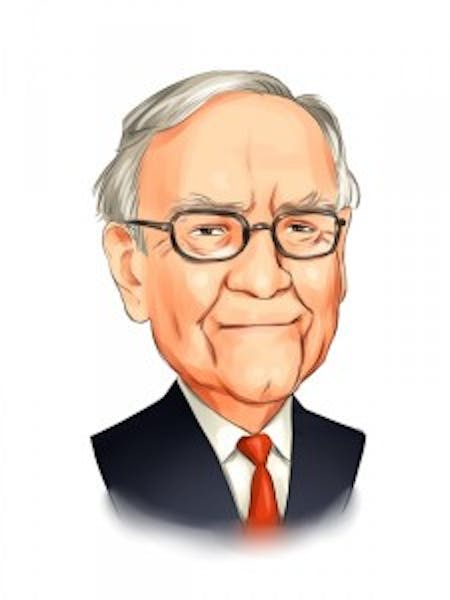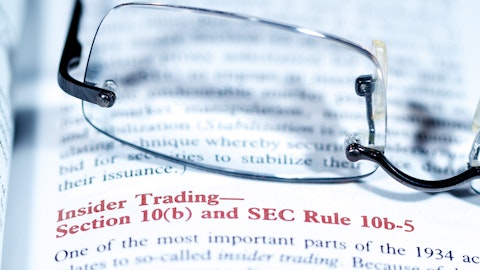Note: If you want to dive in deeper and discuss insights from Warren Buffett’s Berkshire Hathaway 2020 Annual Meeting, please watch the replay of the free live webinar which took place on Monday.
Warren Buffett is idolized by many as the world’s greatest investor of all time. This is well-deserved based on the amazing amount of wealth that he has created for himself and others over decades. Unfortunately, if you were expecting that Buffett’s wisdom at Berkshire Hathaway’s 2020 annual meeting was going to yield easy answers about the current investment landscape, you are likely to be disappointed.

Warren Buffett of Berkshire Hathaway
Q1 2020 hedge fund letters, conferences and more
Themes From The Berkshire Hathaway’s 2020 Annual Meeting
There were 3 clear themes that struck me as I listened to the livestream of the meeting on Saturday. They left me with an impression of a man who is cautious and appropriately uncertain about the future developments of the world from here. It was also quite clear that Buffett did not think there were any opportunities of size attractive enough to invest in, either now or earlier this year. This is in stark contrast with the carefree stock-market rebound that has been occurring since the March lows, and should leave you quite a bit worried if you bought in to the narrative that there will be a quick economic and stock market rebound that is sustainable longer-term.
- Warren Buffett Does Not Know, And Neither Do You!
Warren Buffett: “The range of possibilities has narrowed now vs. when this started. It is not as bad as it could have been nor is it as good as it could have been.”
Warren Buffett: “The range of possibilities is still extremely wide on the economic side. I don’t really know of any parallels of the most productive country in the world sidelining its economy and workforce.”
If you think that you know how this is going to play out, you are kidding yourself. You should always be thinking in ranges, and this time is no different. One thing that is clear is that there are still many surprises that can occur.
The question isn’t even so much about the virus itself. The stock market is reacting, incorrectly, to the evidence that we have gotten that the health impact of this disease is not as bad as initially feared. That is likely to be true. What nobody knows is the second and third order consequences of our approach to the cure.
Will people spend freely once the restrictions on life are relaxed? Will businesses hire workers back? And will there be social unrest as the losers in our society impoverished by the way things have played out through no fault of their own protest this outcome? And will the government’s unprecedented printing of money cause huge unintended consequences? Nobody knows, but the range of possibilities is wider than most of us can imagine.
- The Investment Opportunities In Large Securities Were Unattractive At March Lows, Which Means They Are Even Less Attractive Today.
Warren Buffett: “We have not bought anything because there was not anything attractive to do.”
Warren Buffett: “We did not see anything attractive. A lot of companies got the chance to refinance because of the actions of the Federal Reserve.”
Berkshire Hathaway was a net seller of equities this year, through the end of April. That should surprise you. It is certainly a very different take than the market’s which has rallied sharply off the March lows.
Many stock market participants are now wistfully talking about the March lows as some kind of once in a generation investment opportunity. It was not, at least not on a wide scale in securities of large companies. At least not according to the man who has been most successful at investing across generations.
That is not to say that there were not or are not good opportunities. There were and there are. However, these are not ones that Buffett can deploy billions of dollars in. Rather, they are only available to those who have much smaller pools of capital to deploy, and even in those circumstances the current opportunity set is far from amazing.
Buffett has shined the light on the carefree complacency of many stock market participants who have not yet fully grasped the severity of our current situation. Those who think that what has happened is only a small bump in the investment road might be in for a rude shock to that perception and the value of their investment portfolios.
Think about it, given the magnitude of the economic shock that we are experiencing, does it make sense that the U.S. stock market is down only 12% year to date? After having started at a very expensive level following a long bull market? I am no market expert – I am a value investor whose expertise is investing in individual securities, not market analysis. However, this picture makes little sense to me and smacks more of wishful thinking than of a sober assessment of all the possibilities.
- Berkshire Hathaway’s Intrinsic Value Has Decreased
Warren Buffett: “I don’t think that Berkshire shares are a much more compelling value now than they were 3 months or 6 months ago.”
Warren Buffett: “The amount of litigation that is going to be generated out of what has already happened, much less what is still to happen, is going to be huge.”
That Warren Buffett thinks that Berkshire’s value has declined by a roughly similar amount as its stock price (which has declined roughly 19% year to date) is surprising. After all, part of the premise of the company’s construction is its rock-solid balance sheet, its ability to invest for the long-term in times of distress, and its managerial prowess which should allow many of its subsidiaries to increase their competitive advantage while their competitors are retrenching. Buffett talked about almost none of that, at least not in as far as suggesting that there hasn’t been a major hit to Berkshire Hathaway’s value.
The question that you should be thinking about is that if one of the strongest companies in the world has seen such a large value impairment, what does that imply for many other companies that are less resilient?
If there is one punchline from all of this for investors groping for a sense of what the future may hold, it is this: Be careful. The worst is unlikely to be behind us and caution will serve you well in preserving and growing your wealth.
At Insider Monkey we leave no stone unturned when looking for the next great investment idea. For example, we believe electric vehicles and energy storage are set to become giant markets, and we want to take advantage of the declining lithium prices amid the COVID-19 pandemic. So we are checking out investment opportunities like this one. We read hedge fund investor letters and listen to stock pitches at hedge fund conferences. Our best call in 2020 was shorting the market when S&P 500 was trading at 3150 after realizing the coronavirus pandemic’s significance before most investors. You can subscribe to our free enewsletter below to receive our stories in your inbox:
Disclosure: None





